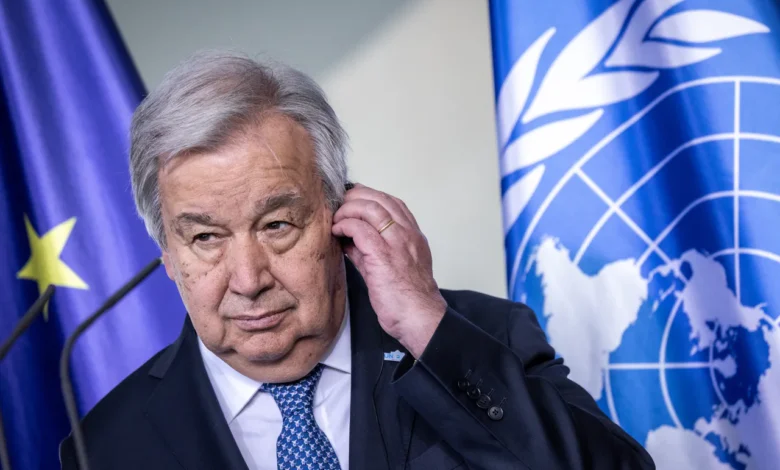
The United Nations is undertaking its most significant cost-cutting effort, with Secretary-General António Guterres announcing a 20% reduction in the organization’s regular budget, amounting to about $740 million in cuts.
This move comes as the UN faces mounting financial strain, much of it triggered by the uncertain status of U.S. contributions, which traditionally account for nearly 22% of UN’s core budget.
The United States, under renewed conservative leadership, has suspended funding to several UN agencies and is reviewing its extensive financial role within the organization.
“We’re not going to be part of organizations that pursue policies that hamper the United States,” said Deputy State Department spokesperson Tommy Pigott, signalling further reductions in U.S. support.
Guterres, while framing the reform under the banner of “UN80” in recognition of the institution’s upcoming 80th anniversary, acknowledged that budgetary realities, not symbolism, are driving the overhaul.
“Budgets at the United Nations are not just numbers on a balance sheet, they are a matter of life and death for millions around the world,” he said, defending the reductions as necessary to preserve core operations amid a crisis.
Also Read: UN boss Guterres faults wealthy nations for causing debt distress on Africans and must pay
The regular budget, currently $3.7 billion, will be brought to its lowest level since 2018, and approximately 7,000 jobs are expected to be eliminated across departments ranging from peacekeeping to humanitarian support.
Guterres has directed department heads to identify redundancies, consolidate operations, and explore moving posts to lower-cost duty stations as part of the cost-reduction effort, with final restructuring details expected in the UN’s September budget submission.
While the Secretary-General insists the cuts are part of a long-overdue modernization plan, the internal response has been sharply critical.
UN staff in Geneva recently passed a motion of no confidence in Guterres, denouncing what they described as a rushed and unfocused strategy.
“Staff felt its slash and burn approach lacked focus, had no strategic purpose, and was making the UN more top-heavy and bloated,” said Ian Richards, president of the UN Staff Union in Geneva.
The motion is symbolic, but reflects widespread anxiety that the cuts could weaken the institution’s ability to respond to global crises.
Some argue that the looming budget shortfalls would have forced change regardless, and that acting early gives the UN a chance to reshape itself before funding dries up entirely.
With global demand for aid and diplomacy increasing, Guterres is betting that deep cuts now may allow the institution to remain effective and relevant in a rapidly shifting geopolitical landscape.






Zaproxy dolore alias impedit expedita quisquam.
What i don’t understood is in fact how you’re not really much more well-preferred than you may be now. You are very intelligent. You realize thus significantly when it comes to this topic, made me in my opinion consider it from numerous various angles. Its like men and women are not fascinated except it is something to do with Woman gaga! Your personal stuffs outstanding. At all times care for it up!
Hello.This post was really motivating, especially since I was searching for thoughts on this issue last Tuesday.
Hey are using WordPress for your site platform? I’m new to the blog world but I’m trying to get started and set up my own. Do you require any html coding knowledge to make your own blog? Any help would be really appreciated!
**mind vault**
mind vault is a premium cognitive support formula created for adults 45+. It’s thoughtfully designed to help maintain clear thinking
Hi, I think your site might be having browser compatibility issues. When I look at your website in Safari, it looks fine but when opening in Internet Explorer, it has some overlapping. I just wanted to give you a quick heads up! Other then that, fantastic blog!
fantastic post.Never knew this, thanks for letting me know.
Hi there, just became alert to your blog through Google, and found that it is truly informative. I’m going to watch out for brussels. I’ll be grateful if you continue this in future. A lot of people will be benefited from your writing. Cheers!
What i do not realize is actually how you are not actually much more well-liked than you may be now. You’re very intelligent. You realize thus considerably relating to this subject, produced me personally consider it from a lot of varied angles. Its like women and men aren’t fascinated unless it is one thing to do with Lady gaga! Your own stuffs excellent. Always maintain it up!